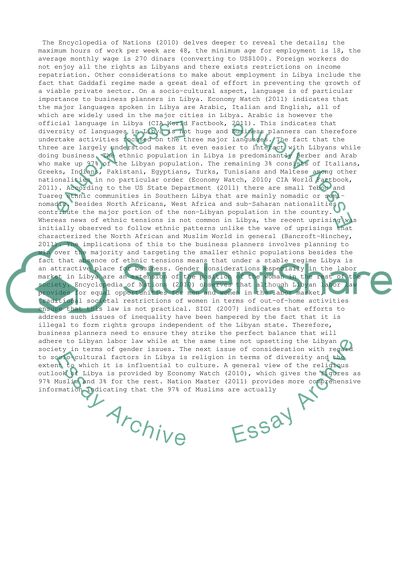Country Analysis (Libya) for International Business Class Essay. Retrieved from https://studentshare.org/business/1433482-country-analysis-libya-for-international-business
Country Analysis (Libya) for International Business Class Essay. https://studentshare.org/business/1433482-country-analysis-libya-for-international-business.


